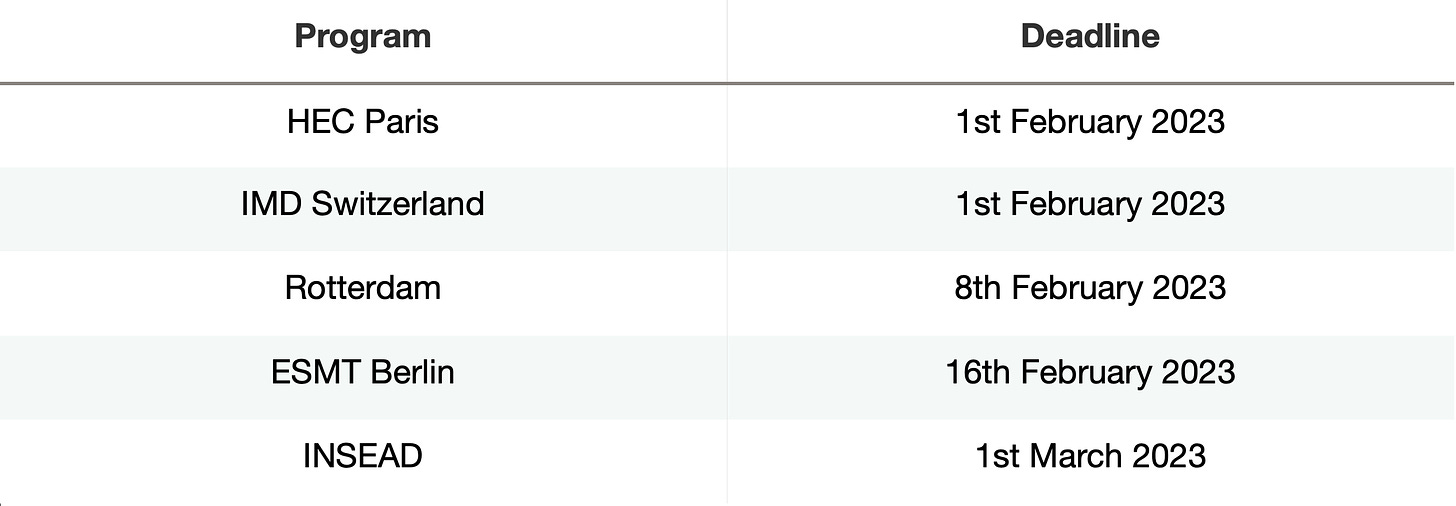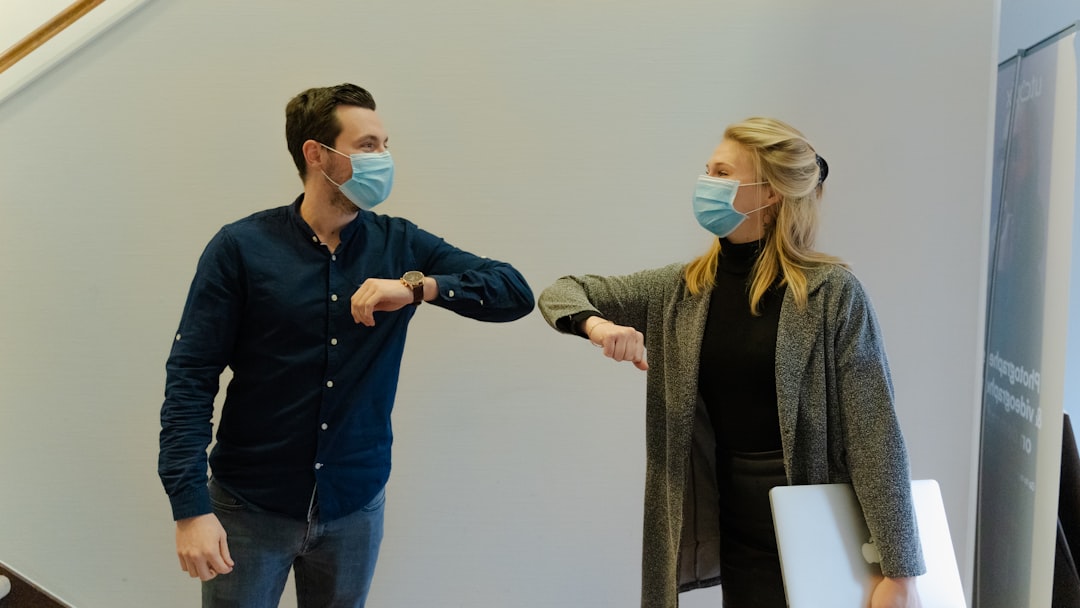Hello!
Are you or are you not currently watching The Last of Us on HBO/Disney+?
If you are not, why not? It is fantastic. Currently rated at 96% on Rotten Tomatoes and 9.3 on IMDb.
It’s about a post-pandemic world- where the survivors are picking up the pieces and trying to live amidst a dark and terrifying world 🫠
Hmmm sounds familiar, with some key differences- their pandemic was not viral in nature like ours- theirs was a fungal pandemic. Anddd it features a fungus called Cordyceps that takes control of people.
The truly terrifying part? Species of parasitic Cordyceps and Ophiocordyceps fungi are very real. Here, on the BBC's Planet Earth series, Sir David Attenborough watches as one takes control of an ant:
Yikes.
In any case, post pandemic problems are real. Which brings me to the first story of this month- what happened to the Class of Covid? The brave folks who went ahead with their MBAs in 2020 as the world collapsed all around them? What was their experience like?
The second story is about MBA fatigue and how to deal with it.
Let’s dive in 🤿
Notable Upcoming Deadlines
The Class of Covid
The dark clouds of the pandemic seem like a distant memory to most of us now, but it was only a couple of admission cycles ago that the virus was running riot. It was so recent in fact, that those who entered their MBA programs in fall of 2020/2021 would just about have finished their degrees now, depending on the length of the course. So, what happened to this class? How has covid impacted their experiences? Have they managed to emerge unscathed or has their B-school experience been marred by the long shadow of the virus?
Well for starters, their road to their dream schools might have been a mite easier, because many schools waived the GMAT requirements for a couple of admission cycles, including the September 2021 intake. MIT Sloan, Darden, Kellog and Hult waived the GMAT and a couple of them are still committing to test flexibility, while others have reinstated it.
Obviously, classroom learning was affected, but it might not have been all negative. For instance, at the University of Oxford Saïd, the class size was cut in half in order to accommodate social distancing needs. However, the unintended spillover was that it fostered better interactions and exchanges between students and so it's likely that this will continue.
A few schools also acknowledged the need for flexibility in MBAs and began offering more options and means of completion for those who cannot necessarily take a couple of years off at a go. For instance, ESADE introduced a 21 month program alongside its 12, 15 and 18 month options and has vowed to continue to find better and varied options going forward.
Finally, when it comes to exits, virtual recruitment has been a great leveler. Employers have been able to recruit from schools in regions and time-zones that might not have warranted a physical trip in pre-covid times. Firms such as PwC continue to conduct about 30% of their interviews virtually even now.
Obviously, there were downsides too – one of the biggest selling points of an MBA is the collegial experience and all the interactions with fellow students. Further, many MBA programs saw an increase in domestic demand and a fall in international students – due to travel restrictions – leading to a less diverse cohort. Ultimately, the class of covid received a mixed bag. While some of their experiences during the program might have been curtailed, they were sheltered from the worst of the pandemic-induced downturn and are set to enter a market that is on the path to recovery.
MBA Fatigue- how to escape the void 😵💫
MBA programs are rigorous – this comes as no surprise to anyone, let alone a bunch of MBA enthusiasts such as us. However, what is perhaps less obvious is how to navigate these struggles – the exhaustion, the lack of will, feeling that you’re falling behind and being uncertain about the future. Instead of just accepting this as part of the package, can we begin to think about the mental aspects of an MBA in more actionable ways?
For most of us, by the time we enter the program we are tired. It's been a long application season, what with studying for the GMAT, writing endless essays and trying to balance work and a personal life on top of that. Key to setting yourself up for success is to enter the program with the right mindset.
Be realistic: Be honest with yourself about the requirements of the degree and your current level, as well as the gap that lies between these two things. Then begin to equip yourself to bridge this gap – be proactive in your planning, pace yourself and ask for help when you need it.
Take breaks: A lot of MBA students are very Type A characters and often find themselves unable to slow down. They tend to work until the point of breakdown and despair. Preempt this by carving out structured blocks of time for leisure – whether that means lying down in the grass, listening to music or chatting with friends. Make sure you listen to your body’s need for rest and relaxation! Even when it comes to work, endless study sessions are characterized by a dip in productivity. Instead, explore alternative methods of study such as the Pomodoro method, in order to optimize the time spent at your desk.
Catch some Zs: A lack of sleep is the key predictor of burnout. If you’re getting under 6 hours of sleep a night, you are almost guaranteed to be operating sub-optimally and putting your body under fair amounts of stress. Make sure you are draconian about your sleep schedule – even during finals weeks – because it's just that important!
People first: Prioritize your relationships with other humans, be it friends, classmates or professors. People in B-schools can sometimes tend towards being overly competitive and cutthroat but it always pays to be nice. Approach others with the intention of forming genuine connections and exchanging ideas, help your classmates out and take a genuine interest in the lives of others and you might just find strength in community! If that wasn’t enough motivation already, studies have shown that people who are civil tend to do better and are perceived as leaders.
Find your purpose: This is the single most important thing you could do for yourself. Find out what you love doing and make that a priority. Whether that’s a line of work, an academic specialization or a volunteering gig on campus, explore your passion and pursue your purpose single-mindedly. Even when it comes to placement season, ensure you’re considering jobs that fulfill your sense of purpose; studies have shown that people are 3x more likely to stay in a job if they feel they are engaged in fulfilling work. So, in all ways, this is in your best interest to cultivate and identify.
What are we reading at Base Camp?
The Domino Effect of Adani’s downfall
Why the Super Rich are Inevitable
Instagram’s Co-founders are mounting a comeback
Thank you for reading our monthly newsletter- Base Camp.
As always, if you're looking for admissions consulting for top tier MBA/Masters programs, reply to this email or schedule a call with me 👋
See you next month!






